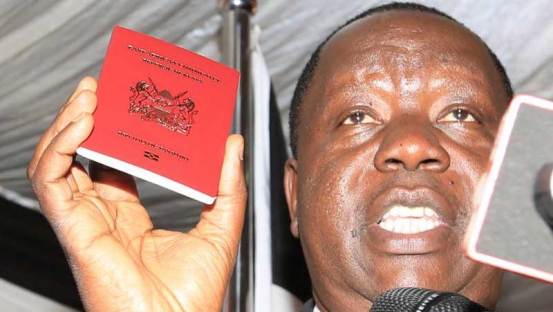×
The Standard e-Paper
Join Thousands Daily

The Immigration Department has rolled out e-passports but the current ones will, however, remain in use for two years
The new documents will bear the words ‘East African Community’ as well as ‘Kenya’ in line with the drive for regional integration.